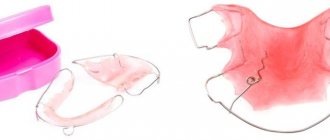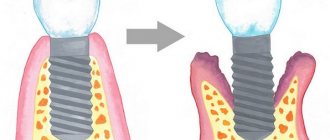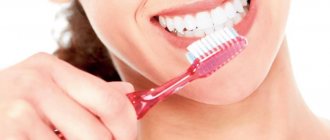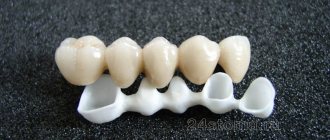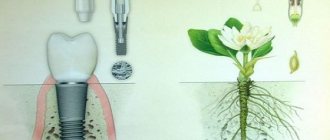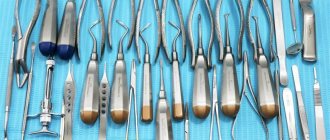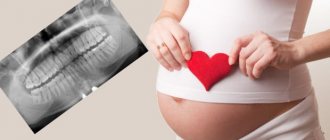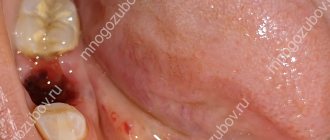Implantation is a method of replacing lost teeth by installing an artificial titanium root (implant) into the jaw bone. With one-stage implantation, the crown is installed immediately after the introduction of the titanium rod, with two-stage implantation - after engraftment. We install Nobel Biocare implants, the patient receives a lifetime guarantee . But for the operation to go smoothly, you need to carefully prepare for it. And proper care from the moment of installation to the fixation of permanent dentures is a guarantee of successful implantation and good health of the patient.
Why is it important to care for dental implants?
Careful care of artificial teeth is important for the survival of titanium roots. After the implantation of the structures, a restructuring occurs in the bone tissue, and the body adapts to the presence of a foreign body. It is important that nothing interferes with the integration of the implant. Engraftment slows down due to chronic diseases, trophic disorders, and inflammatory changes.
Improper care after fixing the crown creates a risk of periodontal disease. Bacterial plaque accumulates in areas under the crown, which disrupts the balance of beneficial and harmful microflora in the mouth. When the latter predominates, inflammation develops. It passes from the gums to bone tissue with the development of periostitis or peri-implantitis. In these conditions, implant failure is likely.
Patients at risk need to be especially careful, since they have trophic or immune disorders even before the introduction of titanium roots. This negatively affects the healing of implants, slowing down the process. There is already a risk of rejection, but if hygiene rules are violated, it increases significantly. The risk group includes:
- pregnant women;
- patients with diabetes mellitus, low immunity;
- allergy sufferers;
- persons with alcohol, drug, or nicotine addiction;
- people exposed to chronic stress.
What to do in the first days after surgery
Rehabilitation begins immediately after installation of the implants and lasts 6-7 months until complete implantation. The first 2 weeks are the most important. As a result of the intervention, an open wound forms in the patient’s mouth, into which infection can easily penetrate. Do not place excessive stress on the artificial root or jaw.
How to avoid swelling
The cut gum tissue swells, which is considered normal. Swelling occurs 2-4 days after surgery and persists for several days. To prevent and reduce swelling, we recommend applying cold to the cheek for 5-10 minutes with 20-minute breaks during the first two days.
When implanting implants in the upper jaw or after a sinus lift, you need to cough, sneeze and blow your nose carefully, without opening your mouth wide, without puffing out your cheeks, and avoiding pneumatics inside the nose and sinuses.
Oral care
Hygienic care of implants in the first days involves exclusively rinsing with antiseptics prescribed by a doctor. The patient is allowed to brush his teeth with a new brush with soft or medium-hard bristles outside the implantation area. If a crown is installed immediately, the structure is cleaned with a soft brush, without pressure and without affecting the gums. An electric brush cannot be used after surgery, as it can easily damage the stitches. Due to vibration, the implants become loose and the structure may break.
Hygienic treatment is carried out twice a day and after meals. The following points are taken into account:
- Before removing the stitches, vigorous rinsing with antiseptics is prohibited;
- Only oral baths are allowed;
- Using dental floss or superfloss in between teeth.
Taking antibiotics and other drugs
It is important to strictly follow the doctor’s recommendations and follow the dosage regimen indicated in the leaflet:
Antibiotics after implantation
With meals, 1 tablet 2 times a day for a week. When using antibiotics, adhere to the prescribed dose, regimen and course of treatment. You cannot stop taking it before the due date. This can lead to complications.
Medicine "Nimesil"
2 powders 2 times a day after meals for 6 days. Painkillers are taken when it hurts. Powders are consumed after meals to reduce the risk of irritation of the gastrointestinal mucosa. You should not take painkillers more often than once every 6 hours (unless your doctor gives other recommendations).
Antihistamines "Tavegil" or "Suprastin"
1 tablet 2 times a day for 6 days. The drugs reduce the risk of allergies and swelling.
Why do headaches occur after dental implantation?
Surgery is accompanied by various ailments, including headaches. This is due to the activation of the body's immune system. In some patients, along with pain, body temperature rises.
Normally, the head may hurt for three days. At this time, you need to take painkillers. If the symptom persists for more than four days, it may indicate inflammation around the implant or an allergic reaction to metals.
If, in addition to pain in the mouth, there is a metallic taste, bitterness, sleep is disturbed, and constant weakness is felt, then you should consult a doctor.
After the operation, the patient receives a package of “NB AFTER” medications for treatment at home.
Doctors at our Center instruct each patient after surgery and issue general and individual recommendations. You will find them in printed form in the “NB AFTER” box along with the prescribed medications.
Levin Dmitry Valerievich
Chief physician, Ph.D.
Nutrition rules
It is important to pay close attention to your diet. After surgery, it is not recommended to eat for 2 hours . As time passes, it is permissible to eat warm and soft foods and avoid spicy foods. List of recommendations:
- chew on the opposite side of the sutures;
- before eating, apply Solcoseryl dental adhesive paste to the seams;
- after eating, make oral baths for 2-3 minutes with a solution of “Chlorhexidine”;
- when implanting dental implants, do not eat solid foods that change the position of the restoration stimulators installed along the neck of the implant;
- Limit food that requires active chewing.
Do not use:
- solid foods (apples, cucumbers);
- fibrous meat;
- hot dishes;
- cold dishes;
- spices.
You need to eat soft, easily digestible food of uniform consistency. It is better not to consume berries and purees with crushed seeds.
Lifestyle
Immediately after implantation, the patient should not smoke or drink alcohol. Bad habits have a bad effect on trophic processes and the functioning of the immune system, and negatively affect osseointegration.
In the first days after surgery, it is advisable to sleep on your back or on the side opposite to the implantation site. After tissue fusion, this limitation is removed.
From the first days and during the first month after the operation, the following are prohibited:
- visits to a sauna or bathhouse, hypothermia - weaken the immune system;
- air travel - especially after implantation with simultaneous sinus lift;
- loads - you cannot lift weights, overexert yourself physically or mentally, light physical labor or exercise in the pool is allowed.
If there is pain
Painful sensations when swallowing and opening the mouth are considered normal after dental implantation. The intensity differs for each patient. We focus on the fact that moderate pain, which can be relieved with painkillers, can be considered normal.
You need to contact the coordinator or attending physician using your personal code through the 24-hour medical post service if, after taking the drug:
- the pain does not go away or gets worse;
- the bleeding from the wound does not stop;
- body temperature does not decrease for 2-3 days;
- the feeling of numbness persists for more than 4 hours.
The support contact number is printed on the advice sheet that we issue after implantation. Don't hesitate to call and ask any questions!
Implantation of 3 teeth, E.max ceramic crowns
Attending doctor
Strigin Vladimir Igorevich
Find out the price
How long does it take to heal?
Bone tissue and gums heal after dental implantation on average from three to six months, and the period is different for the upper and lower jaws. The lower jaw will heal in three to four months, but the upper jaw will take longer: four to six months. This is due to the greater bone density of the lower jaw.
Sometimes the healing rate deviates from the average time frame, because it depends on the individual characteristics of the patient’s body: the speed of regeneration, the strength of the immune system, the pain threshold. Even such factors as gender, age, lifestyle, diet and daily routine of the patient are important.
In any case, recovery after surgery takes some time. Following medical recommendations will help protect yourself from complications during healing.
How to care during the engraftment stage
A few days after implantation, the integration of the artificial root into the jawbone (engraftment) begins. Careful care is necessary, but measures are becoming less frequent.
After swelling disappears and acute inflammation stops, you can use a toothbrush. It must be soft and not scratch the gums, but touching the seams with it is still undesirable. It is important to clean between teeth after eating. To do this, use a brush or rinse aid.
For patients with complete edentia at the stage of implant healing, doctors recommend using a removable denture, which also needs to be looked after:
- must be rinsed with water after every meal
- brush daily with a soft toothbrush and special toothpaste
- Soak 2-3 times a week in a special solution to eliminate bacteria and preserve beauty.
With removable temporary dentures, the plastic saddle base should not put pressure on the sutures. If you feel pressure, you should not wear the prosthesis without correction! You need to contact us at the clinic. Swelling of the gums after surgery exacerbates the discrepancy between the crowns and the new gum contour. This is the norm, but requires correction.
Rules of care after installation of a crown or prosthesis
To clean orthopedic structures (crowns, bridges) on implants, you need to use a non-electric toothbrush, mouthwash, and an oral hygiene device - an irrigator.
Crowns
When restoring lost teeth, crowns can be installed immediately after implantation or after the implantation of an artificial root. Caring for the crown after surgery involves cleaning its surface with a soft brush. The base cannot be vigorously cleaned.
After the implants have healed, care comes down to brushing on all sides, especially in the area between the crown and the gum. This is where plaque and bacteria accumulate. Hygienic treatment is carried out twice a day. Dental floss cannot be used due to the risk of damaging the gums and exposing the titanium root, which can lead to rejection of the material.
Bridges
Orthopedic bridge structures are installed in case of complete or multiple edentia on several implants. Such dentures require more careful care. Superficial cleansing involves the use of a toothbrush and mouthwash. Dirt and food debris from the gums are removed using a monotuft brush or brush, or an irrigator.
Related articles:
- Guarantees of our Center
- Engraftment of implants
- Our advantages
Hygiene products at different stages
At each stage of dental restoration, the doctor gives the patient recommendations for care and treatment, recommends devices and gives instructions for use. You cannot ignore the advice of an implantologist, because the engraftment of titanium roots and the service life of the products may depend on this.
Toothbrush
The brush is used for basic cleaning of the oral cavity. Immediately after treatment, only soft brushes can be used. After the implants have healed, the use of medium-hard brushes is allowed. It is important to change the device regularly.
Toothpaste
The implantologist gives recommendations to the patient regarding toothpaste for caring for implants. It should have a soft, uniform consistency, reduce inflammation and fight bacteria. Conventional pastes are not suitable. Some of them are abrasive. They can damage the orthopedic structure. It is better to give preference to medicinal pastes.
Irrigator
The irrigator provides high-quality cleaning of the surface of the teeth, as well as interdental spaces, gum pockets, and the pores of the material from which the prosthesis is made. The device operates on mains power or battery power. The principle of operation is based on the supply of liquid under pressure, due to which it reaches hard-to-reach places. You can use the irrigator only after the implants have completely healed. Implantologists recommend cleaning the oral cavity with clean water, as well as special solutions. In addition to cleaning, the irrigator provides a light massage of soft tissues.
Cleaners
Brushes are small thin brushes of various shapes and lengths. They are designed for manual cleaning of hard-to-reach places (interdental spaces, the inside of the crown). There are cylindrical and cone-shaped brushes. The products are best used to clean the areas between the teeth, as well as the top of the implants at the point of contact with the gums. Curved brushes are suitable for cleaning the inside of bridges.
Dental floss
Flosses can be used only after the gums have completely healed, in consultation with your doctor. Regular dental floss can easily injure soft tissue, so after implantation it is better to use a series designed specifically for this. Such threads consist of a guide tip, sections of spongy and classic dental fiber. They are safe for soft tissues and easily penetrate even the narrowest areas between teeth. Suitable for cleaning the abutment and crown surface.
Frequency of scheduled control
The patient is required to regularly visit the implantologist from the moment the artificial root is placed. The visit schedule for each patient is individual, but the average time frame is as follows:
3 days after implantation
The doctor assesses the patient’s condition, the intensity of inflammation, and, if necessary, prescribes medication
10-14 day
The implantologist removes the sutures and assesses the quality of tissue regeneration
4-6 months
The doctor installs a gum former to make it look beautiful
7 months
An implantologist installs an artificial crown
When are sutures removed after dental implantation?
The date of suture removal is determined by the doctor, focusing on the condition of the gum tissue. Usually the procedure is prescribed after 10 - 14 days. If the wound does not heal well, this time can be increased to three weeks.
Sutures should not remain in the gums for too long, as this can lead to the development of inflammatory processes. Self-absorbing suture material does not need to be removed.
How to remove stitches:
- treat the oral mucosa with antiseptics;
- cut the thread stitches in half;
- remove the cut material with tweezers;
- antiseptic treatment is repeated;
- apply a sterile bandage.
Small wounds in the gums heal after one or two days. At this time, discomfort and pain may occur.
If the stitches come apart, they are removed immediately. This phenomenon usually occurs with severe inflammation.
When should you see a doctor outside of your plan?
After implantation of a titanium root, as well as for the entire life of the structure, the patient faces a risk of complications. Regular examinations allow you to identify early adverse signs and begin treatment. An unscheduled examination by a doctor is needed if:
- for no apparent reason the temperature rose, weakness, chills appeared;
- when touching the implantation area, discomfort and pain occur;
- there was a feeling of numbness;
- the temporal joint functions poorly (crunches, hurts, the mouth does not open);
- the prosthesis is damaged;
- the bridge or crown has moved;
- there is pain when chewing;
- gums are red and bleeding;
- there was an unpleasant odor from the mouth.
When you need urgent help from a dentist
- the stitches on the gums have come apart,
- swelling does not subside 4-5 days after surgery or appears again after normalization of the condition,
- the pain does not decrease after 3-4 days: you can contact the dentist earlier if the pain is unbearable,
- tissue numbness lasts longer than 7 days in a row,
- the gums are very inflamed, pus or an unpleasant odor appears,
- very high temperature (above 39 degrees), or its increase after normalization,
- it hurts to close your jaws (even very carefully),
- the prosthesis wobbles and shifts.
Precautions for patients with bad habits
Already a year after implantation, almost all restrictions on lifestyle and nutrition are lifted from the patient. It is important to remember that artificial teeth require careful treatment. It is necessary to monitor the state of personal health so as not to provoke rejection of titanium roots.
Stop smoking
Resins, combustion products, carcinogens, and other chemicals stain dentures, causing them to lose their aesthetic properties. Under the influence of nicotine, the production of saliva is disrupted, due to which the protective properties are reduced. For smokers, the risk of developing periodontal diseases is higher, since trophic processes in the tissues worsen.
After implantation, the patient should not smoke for 2 weeks (before the sutures are removed) so as not to slow down tissue regeneration. After complete healing, smoking is possible, but not advisable. If a person cannot give up a bad habit, he should reduce the number of cigarettes, switch to less harmful substitutes, and also improve oral hygiene.
Limit alcohol consumption
Alcohol negatively affects the immune system, and therefore increases the risk of implant rejection. In a state of alcoholic intoxication, the risk of damage to dentures increases (from hard food or during hygiene). There is a higher likelihood of severe injuries to the oral mucosa and jawbone (during a fall or fight).
Key nutritional features
During the first 3 days:
- chew only with the teeth located on the opposite side;
- Avoid alcoholic drinks and coffee, which can cause bleeding (ethanol can react with medications used during surgery, which often leads to allergies).
During the first 14 days and until complete healing:
- increase the chewing load very slowly and incrementally;
- Avoid very cold, hot or spicy foods;
- include foods with a lot of calcium in your diet, which will speed up the restoration of bone tissue;
- Eliminate rough and tough foods, such as nuts and seeds, from your diet.
Possible complications if you do not follow the recommendations
Violation of the rules for caring for implants is fraught with peri-implantitis. This is an inflammation of the tissues surrounding the artificial root. Inflammatory changes affect soft tissues and bone, which can lead to implant rejection.
If an artificial rod is rejected, long treatment and complex measures to restore the bone are required.
Lack of hygiene provokes the accumulation of plaque on crowns, changes in their color, and deterioration in the aesthetics of a smile. Even professional cleaning cannot cope with stains and mechanical damage, so the orthopedic design has to be changed.
